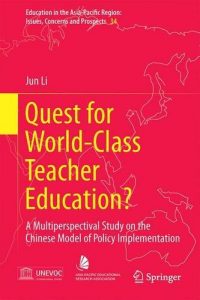Utilizing a case study method and a Multiperspectival Approach, this volume presents a pioneering, in-depth study about China’s teacher education policy since the 1990s. It critically investigates the rational, dynamic and complex implementation process taking place at the micro institutional level for the transformations of teacher education institutions. The book first introduces the sociopolitical and cultural background of China’s teacher education system and its challenges under the condition of globalization, and illustrates major national initiatives for nurturing highly qualified teachers. It then explores new teachers’ identities in an era of enhanced professionalism, uncovers the ways they reflect China’s teacher education reform, and distills the rationales behind these policy actions. This is followed by an analytic presentation of the findings of the case study of a provincial normal university, with a particular focus on such core pieces of the implementation jigsaw as policy flow, the dynamism of implementation, sociopolitical and cultural confluence, and institutional barriers in the complex process. Lastly, the book unravels key recommendations and implications for policy implementation studies from the China policy case, and constructs a Chinese Zhong-Yong Model of policy implementation, and sheds new light on policy studies of teacher education reform in particular and public policy in general, which may be transferable to other sociopolitical contexts seeking to nurture world-class teachers and achieve educational excellence in a global age.

